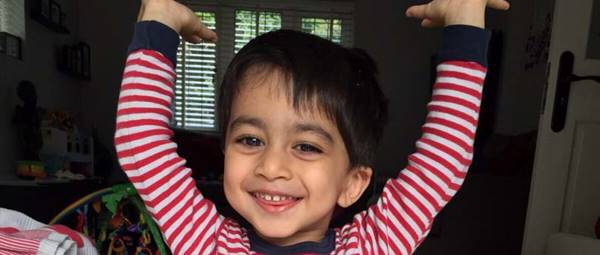Get the facts about organ donation
Your organ donation decision is important, whatever it may be. Use this information to help you make an informed choice.
Healthcare professionals have a duty of care to save your life first.
If - despite their best efforts - death is inevitable, organ and tissue donation will be considered as end of life care discussions start with your loved ones.
Only when end of life care planning is started is the NHS Organ Donor Register accessed by a specialist nurse for organ donation and the possibility of organ donation discussed with your family.
There are strict criteria in place in the United Kingdom to help those caring for the dying, by providing safe, timely and consistent criteria for the diagnosis of death.
Organs are never removed until a patient’s death has been confirmed in line with these criteria.
Most people do not die in circumstances that make it possible for them to donate their organs.
In fact, only around 1 in 100 people who die in the UK are usually able to be donors. Donors are typically those who have died in a hospital intensive care unit or emergency department.
The organ donation process involves a specialist team who ensure that donors are treated with the greatest care and respect during the removal of organs and tissue for donation.
The retrieval of organs takes place in a normal operating theatre under sterile conditions, and is carried out by specialist surgeons. Afterwards the surgical incision is carefully closed and covered by a dressing in the normal way.
Only those organs and tissue specified by the donor and agreed with the family will be removed.
Your faith and beliefs will always be respected.
Within an opt out system the decision about whether or not you choose to donate your organs is still yours to make.
If you don’t want to donate, it’s really quick and simple to record your decision on the NHS Organ Donor Register.
The opt out system does not cover non-routine transplants
You cannot choose to donate your hands, face, limbs or womb by registering to become a donor on the NHS Organ Donor Register. These kinds of transplants are very rare and are not a part of routine donation. Donation for these transplants is not covered by the deemed consent or ‘opt out’ system.
Donation for non-routine transplants like these is only possible as part of special research programmes, when a donor dies in very rare circumstances and with a special, additional agreement from the donor's family.
You may have seen misleading messages on social media claiming that the deadline for registering your organ donation decision is coming soon.
In fact, there is no deadline.
You are free to register or amend your organ donation decision at any time.
Withdrawing your details
You can only withdraw your details from the NHS Organ Donor Register if you have previously recorded a decision.
No one is automatically added to a list. Unless you record your decision on the NHS Organ Donor Register, we will not hold any details about you or your preferences.
Opting out of organ donation
If you record a decision to opt out, you are expressing that you do not want to donate your organs and tissue after death.
Your decision is added to the NHS Organ Donation Register, and will be respected in the event of your death.
Get information about the choices you can make
You can change your mind at any time
If you have recorded a decision on the NHS Organ Donor Register and want to update your details, change or reaffirm your decision, you can complete the Amend your details form or call 0300 123 23 23.
Please make sure you share your updated decision with your family.
You may not want to make an organ donation decision yourself. You may have specific instructions, or have concerns about your family not supporting your decision.
If you live in England, Wales or Northern Ireland, you can nominate up to two representatives to make the final decision about organ donation on your behalf.
If you die in circumstances where donation is possible, your appointed representative(s) will be asked if your organs should be donated.
Nominate a representative online
Alternatively, call our contact centre on 0300 123 23 23 and one of our team will arrange to send the form by post.
Your family can override your decision if they don't know what you want
Each year, hundreds of opportunities for transplants are missed because families aren't sure what to do.
Your family will always be consulted about whether you wanted to be an organ donor or not, and clinicians will never proceed with organ donation if your family or loved ones object.
Watch our video to see how your family is involved
If you want to donate
If you want to be an organ donor after you die, it's really important that you talk to your loved ones and make sure they understand and support your organ donation decision. You can also register your decision on the NHS Organ Donor Register.
If you don't want to donate
If you decide not to become an organ donor, you can still help your family through a difficult time by talking to them about your organ donation decision now, and making sure they know what you want. You can also register your decision on the NHS Organ Donor Register.
Get tips on how to talk to your loved ones about organ donation
Get information about the choices you can make
Get more information about how consent is established
The gift of sight
Many people feel uncomfortable thinking about cornea donation, but the reality is that it can mean the gift of sight to someone desperately in need of a transplant.
Did you know?
- While the whole eye is donated, it is the cornea that is transplanted
- Cornea donation does not affect how a donor looks
- Cornea donation does not delay a donor's funeral
All the major religions and belief systems in the UK are open to the principles of organ donation and transplantation and accept that organ donation is an individual choice.
We understand that you may have questions about whether your faith or beliefs affect your ability to become an organ donor.
We've worked with faith leaders and communities to build trust, raise awareness, explore questions around organ and tissue donation, and discuss how organ donation can proceed in line with faith or beliefs.
Get information about how different faith and belief systems view organ donation here
When you register as an organ donor, you have the opportunity to say whether or not you would like the NHS to speak to your loved ones about how organ donation can go ahead in line with your faith or belief system.
This is an optional part of the registration process, but any response you give will be part of your NHS Organ Donor Register record.
When you register your organ donation decision, you may provide information about your religion and ethnicity within the additional information section.
This information is entirely optional, and is only used by NHS Blood and Transplant for analysis of the NHS Organ Donor Register. It is not stored against your registration.
If you have already recorded a donation decision, but haven't recorded any information about whether or not you would like the NHS to speak to your family about how organ donation can go ahead in line with your faith or beliefs, you can still do so.
You can:
- Amend your registration online
- Call us on 0300 123 23 23
We will be happy to update your record for you.
If you live in England, you can also update your registration using the NHS App.
Our specialist nurses always speak to your family to see if there are considerations around your faith, beliefs or culture with respect to funeral plans.
The surgery carried out to remove a donor’s organs is carried out by highly skilled professionals who take the same care and attention, and offer the same respect as they would in any operation to save a patient’s life.
The surgical incisions are carefully dressed after the surgery and any end of life care wishes in relation to the washing and dressing of the body are respected.
The donation operation is performed as soon as possible after death.
After donation, the body is always returned to the family of the deceased in the same way as any death in a hospital where donation has not taken place.
Families are given the opportunity to spend time with their loved one after the operation if they wish.
Organ and tissue donation doesn't prevent you from having an open-casket funeral.
The body is clothed for burial, so there are no visible signs of organ or tissue donation.
The operation site is covered with a white surgical dressing like any other abdominal surgery dressing.




